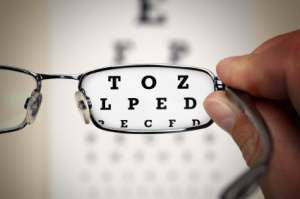

MedFriendly®


Optometry
Optometry is the science that deals with assessing,
diagnosing, treating, and managing the eye and related
structures for visual difficulties (such as
nearsightedness of farsightedness) and eye disorders
(such as cataracts). Cataracts is a darkening of the
lens in the eye. The lens is an organ located between
the colored part of the eye, that bends light as it enters
the eye.
FEATURED BOOK: Optometry: Science, Techniques, & Clinical Management
Optometry is also concerned with vision testing, vision training, eye exercises, and the
prescription of corrective devices such as eyeglasses and contact lenses, all for the
purpose of making someone's vision the best it can possibly be. Someone who studies
and practices optometry is known as an optometrist. Click the next link to see the
difference between an optometrist and an ophthalmologist. Optometrists and
ophthalmologists often work together to treat and manage patients.
Both of these professionals are different from opticians, who dispenses (and sometimes
construct) corrective eye wear (e.g., eyeglasses). Optometry also refers to the use of an
optometer, which is a device that measures the path that light takes when it enters the
eye.
Optometry comes from the Greek word "optikos" meaning "sight," and the Greek word
"metron" meaning "measure." Put the two words together and you have "measure sight."
"Where Medical Information is Easy to Understand"™















